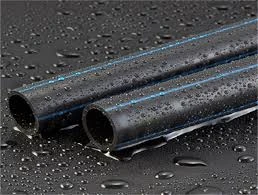Dec . 03, 2024 14:40 Back to list
High Density Polyethylene Coil Pipe Applications and Benefits in Modern Infrastructure
Understanding HDPE Coil Pipes Benefits, Applications, and Features
High-Density Polyethylene (HDPE) coil pipes have gained significant popularity in various industries due to their versatile properties and numerous advantages. These pipes are made from high-density polyethylene resin and are manufactured in a coil form, which allows for easy transport and installation. This article explores the benefits, applications, and features of HDPE coil pipes, highlighting why they are an excellent choice for a myriad of projects.
Advantages of HDPE Coil Pipes
1. Durability and Longevity One of the primary advantages of HDPE coil pipes is their remarkable durability. They are resistant to impact, corrosion, and abrasion, which makes them suitable for various environmental conditions. With a lifespan of over 50 years when properly installed, HDPE pipes offer long-term performance and reduced maintenance costs.
2. Flexibility The coiled design of HDPE pipes allows for flexibility during installation. They can be bent to fit around obstacles without the need for additional fittings, which significantly reduces the time and labor involved in the installation process. This flexibility is particularly beneficial in applications where terrain is uneven or has a lot of turns.
3. Lightweight Compared to traditional materials like metal or concrete, HDPE coil pipes are much lighter, which simplifies handling and installation. Their lightweight nature also reduces transportation costs, making them a cost-effective solution for many projects.
4. Chemical Resistance HDPE is inherently resistant to a wide range of chemicals, making these pipes suitable for transporting chemicals, wastewater, and other corrosive substances. This characteristic ensures that the integrity of the pipe is maintained, even when exposed to harsh environments.
5. Environmental Impact HDPE is a recyclable material, and using HDPE pipes can contribute to sustainable practices in construction and infrastructure. Furthermore, their long life cycle means fewer replacements, which reduces waste and environmental impact over time.
Applications of HDPE Coil Pipes
HDPE coil pipes are used across various sectors due to their versatile nature
1. Water Supply Systems These pipes are a popular choice for potable water distribution systems. Their resistance to chemicals and ability to maintain structural integrity over time make them ideal for ensuring safe drinking water.
hdpe coil pipe

2. Irrigation In agriculture, HDPE coil pipes are often utilized in irrigation systems due to their flexibility and lightweight properties. They can be easily deployed in the field, allowing for efficient water delivery to crops.
3. Sewage and Wastewater Management Their durability and resistance to corrosion make HDPE pipes an excellent option for sewage systems and wastewater transportation. They can withstand the aggressive nature of waste materials without compromising their performance.
4. Cable Ducting Given their flexibility and protective qualities, HDPE coil pipes are also employed in the installation of electrical and telecommunications cables. They provide a protective conduit for cables while allowing for easy access and maintenance.
5. Industrial Applications HDPE coil pipes are suitable for various industrial applications, including the chemical, oil, and gas industries. Their ability to handle harsh chemicals and elevated temperatures makes them an indispensable resource in these sectors.
Key Features of HDPE Coil Pipes
When selecting HDPE coil pipes, it’s important to consider certain features that can impact the performance of the installed system
- Diameter HDPE pipes come in various diameters, allowing for flexibility in design depending on the project requirements. - Pressure Rating The pressure rating of the coil pipes will determine their capability to handle different systematic pressures, ensuring safety and reliability in operations.
- Jointing Methods HDPE pipes offer different jointing methods such as butt welding, electrofusion, and mechanical fittings, providing options depending on the installation environment.
Conclusion
HDPE coil pipes present a highly effective and versatile solution for various applications across industries. Their durability, flexibility, chemical resistance, and environmental benefits make them ideal for use in water supply systems, irrigation, sewage management, and more. As the demand for innovative and sustainable infrastructure solutions continues to grow, HDPE coil pipes are poised to play a pivotal role in shaping the future of construction and engineering projects. Their inherent qualities not only enhance performance but also contribute to an eco-friendly approach to development, making them a smart choice for modern applications.
-
PVC Transparent Sheet Roll - Durable & Flexible PVC Plastic Sheet Roll for Industrial & Home Use
NewsJun.24,2025
-
High-Quality PVC PPR Pipes and Fittings Durable ERA PPR Solutions
NewsJun.10,2025
-
High-Quality Large HDPE Sheets & Large Diameter PVC Pipe Durable Large PVC Pipe Supplier
NewsJun.10,2025
-
High Density Polyethylene Cutting Board - Durable & Food Safe
NewsJun.09,2025
-
3 Inch PVC Pipe for Durable Irrigation Affordable & Reliable
NewsJun.09,2025
-
Premium PPR Plastic Water Pipe Fittings - Durable & Leak-Free
NewsJun.09,2025

